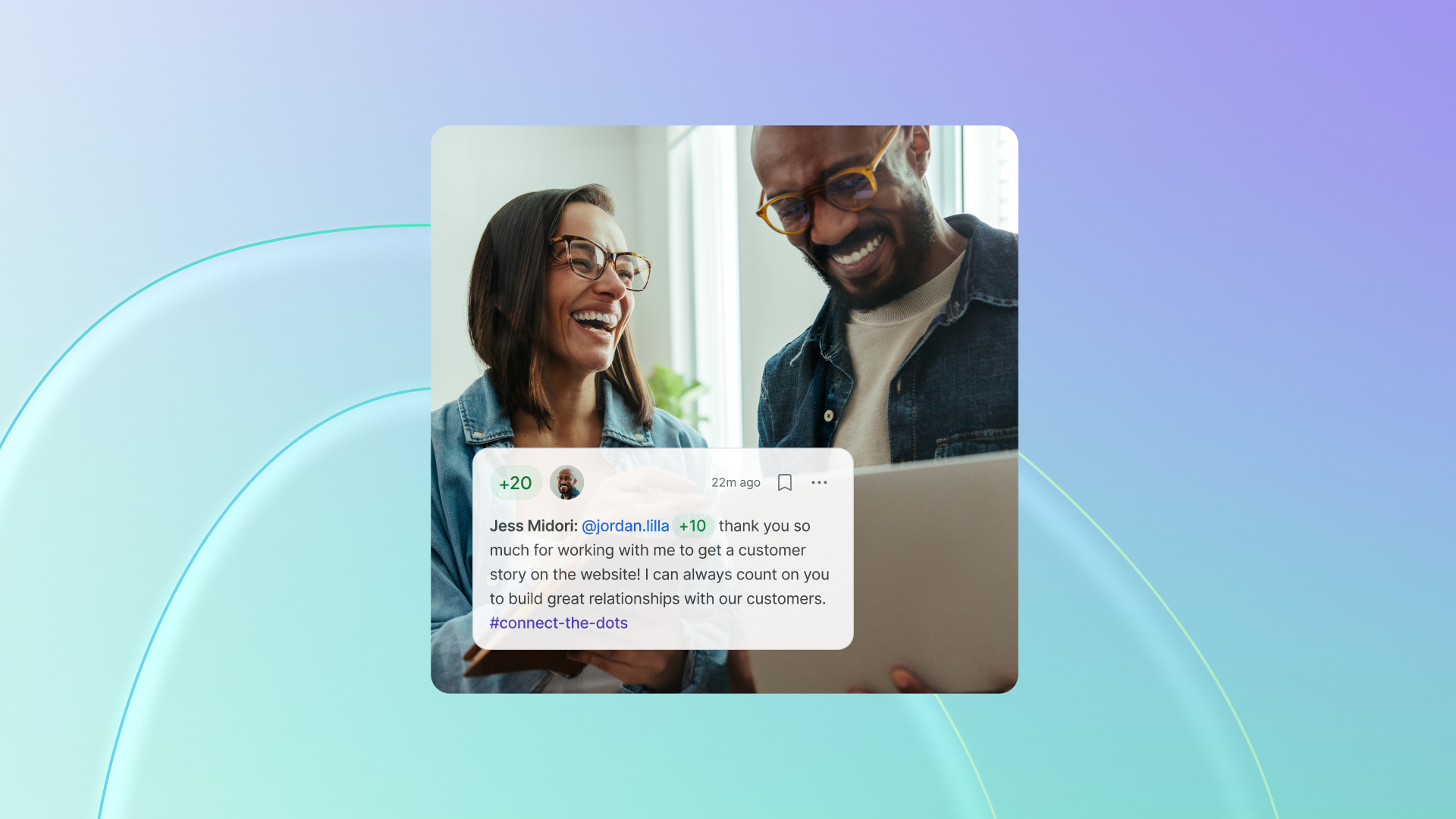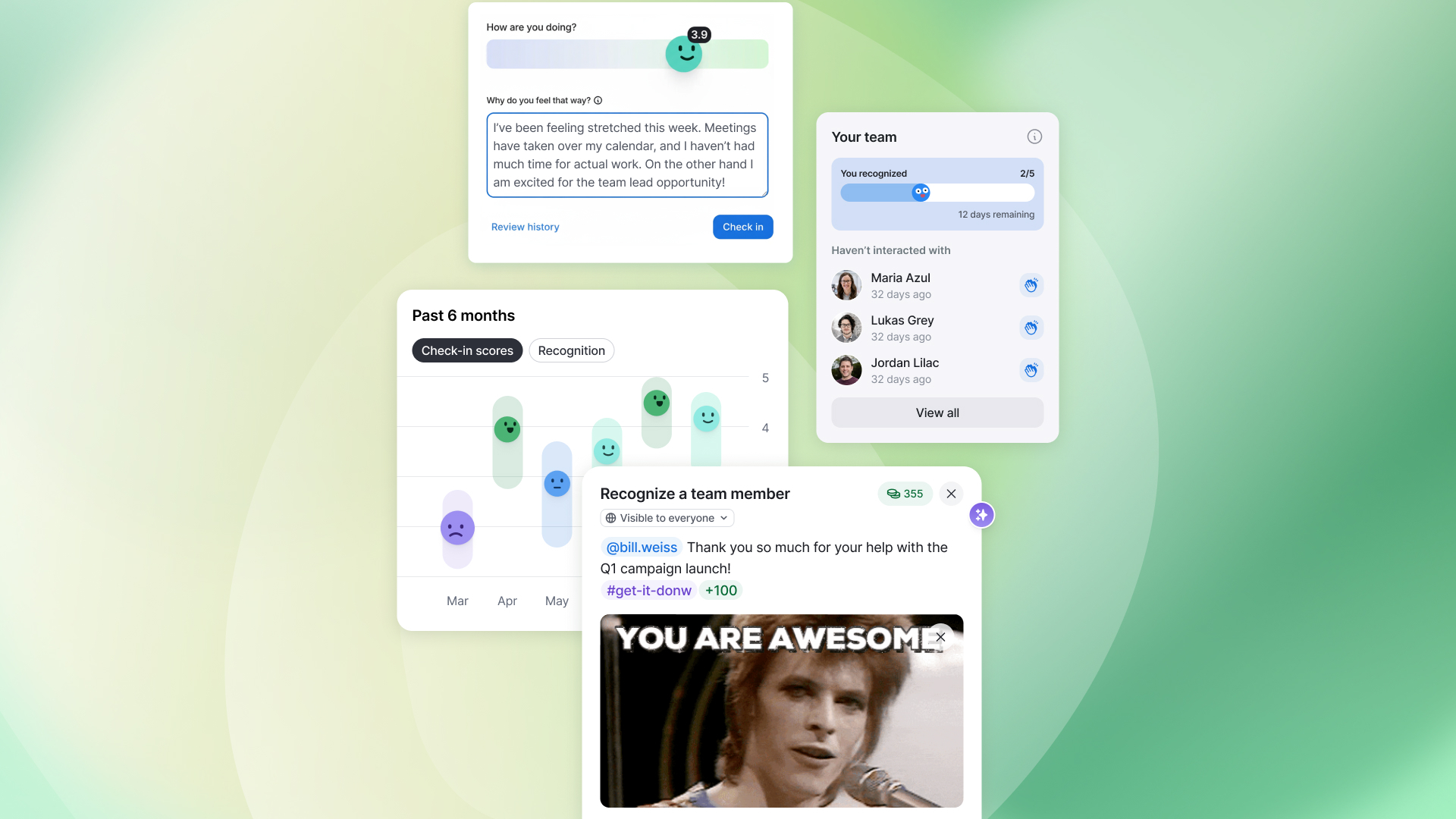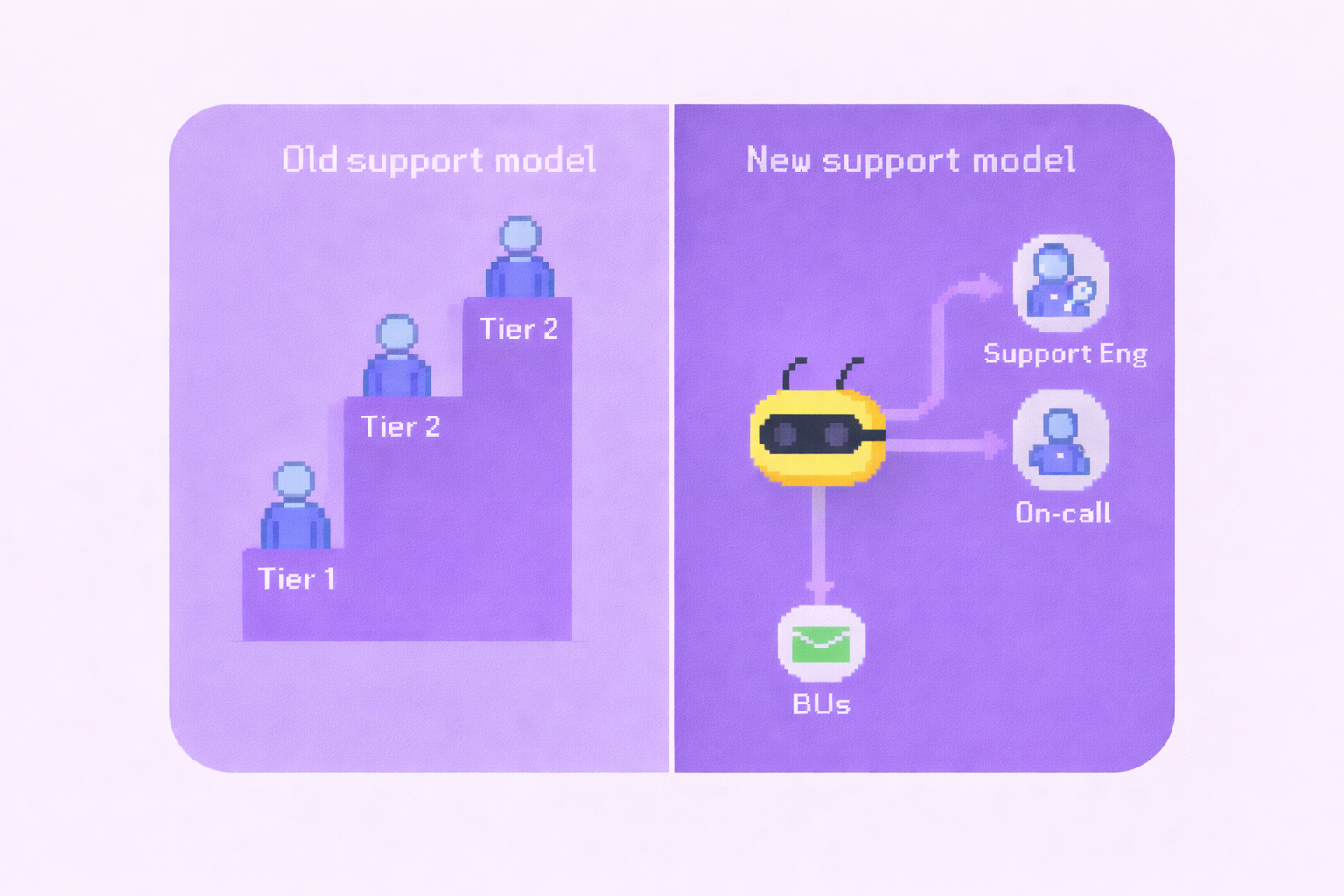How to Write Recognition that Actually Means Something

We all know saying “good job” is nice. But for teams with big ideas and even bigger goals, "good job" is just... not enough. Bonusly’s new AI-powered Quality Score measures recognition’s impact, turning every message into motivation, reinforcement, and connection that moves your teams forward.
Below are practical tips for writing recognition that counts—for both your people and your business.
Why meaningful recognition matters
Recognition that’s specific, genuine, and connected to goals or values does more than make someone smile. Research shows it:
- Strengthens the link between the behavior and the reward (so the behavior becomes habitual)
- Signals to the team what success looks like
- Builds psychological safety and belonging when it’s personal and sincere
Our Quality Score looks for those traits because they’re reliably measurable in a message and they predict the recognition’s impact. And the good news? You don’t have to be a pro writer to create high-quality recognition — small coaching nudges and clear metrics make it easy to hit all the marks until writing meaningful recognition becomes second nature.
The five qualities Bonusly scores — with quick tips
1. Be Specific
Clearly describe what the person did. Avoid vague praise.
Tip: Replace “Great job” with the exact action and result.
Less impactful: “Great work on the project!”
More impactful: “You pulled together the Q2 customer deck and consolidated feedback from Sales, Design, and Ops so it launched two days early.”
2. Personalize It
Highlight what this person specifically brings — their style, strengths, or unique contribution.
Tip: Name the trait or habit that made the difference (e.g., “your curiosity,” “your attention to detail”).
Less impactful: “Great help on the task.”
More impactful: “Your attention to detail — especially catching the data mismatch — saved us an embarrassing error in the report. Love how you always double-check the numbers.”
3. Align to Company Values/Goals
Link the behavior to company values (explicitly or implicitly).
Tip: Name the value or describe how the action shows the value in practice.
Less impactful: “Nice teamwork!”
More impactful: “You lived our ‘Customer First’ value by staying late to walk the client through the rollout — that calm, steady support won their trust.”
4. Recognize the Impact
Explain why the action mattered — to the team, a customer, or the business.
Tip: Add one sentence that ties the action to impact (“because…”, “which meant…”, or “so we could…”).
Less impactful: “Thanks for the fix.”
More impactful: “Thanks for fixing the billing bug — customers can now complete checkout without errors, which cut support tickets by ~40% today.”
5. Keep it Genuine
Make it feel human — not copy/paste. Use your voice, include small details, and avoid one-size-fits-all templates.
Tip: Add a personal sentence or subtle emotion — what surprised you, what you appreciated.
Less impactful: “Thanks for all you do. — Manager”
More impactful: “I really appreciated how you stayed patient when the demo derailed — your calm saved the meeting and kept the client excited.”
Write better as you type with real-time coaching
Learning to write meaningful recognition is faster when coaching happens in the moment. That’s where Bonusly’s AI-powered Gratitude Gauge comes in—a live co-pilot available on desktop, mobile, and Microsoft Teams.
As you type, the gauge checks for five qualities of great recognition and shows what’s there—and what’s missing. Click into any quality to see why it was (or wasn’t) detected, with highlights of the words or phrases that counted.
When something’s missing, the gauge suggests short, contextual examples tailored to the giver’s role and industry so you can patch the gap quickly. It even detects the language you’re typing in and generates examples in that language for a seamless, localized experience.
Small recommendations like “try adding why it mattered” turn a fast shout-out into recognition that teaches, reinforces, and connects.
Easy recognition templates you can copy, tweak, and use
Each template hits the five qualities of great recognition. Swap nouns and small details, and don’t forget to make it your own.
- Specific + Impact:
“[Name], your work on [action] — especially [specific detail] — let us [impact]. That really shows [value]. Thank you for bringing [personal strength].” - Context + Values:
“[Name], you [specific action]. Because of that, [why it mattered]. That’s a perfect example of [company value] — and your [unique trait] made it happen.” - Quick public shout (for Slack/Feed):
“Shoutout to [Name] — they [what they did], which [impact]. Love the way you [personal trait].”
Real-world examples (side-by-side)
Less impactful: “Great job on the report!”
More impactful: “Maya, your executive summary reframed the metrics so the CEO immediately saw the revenue risks and next steps — we avoided a bad decision in the meeting. That clarity is exactly what our ‘Think Big’ value looks like. Thank you for the sharp thinking and calm delivery.”
Less impactful: “Thanks for helping on the support ticket.”
More impactful: “Josh, you stayed on the line for 45 minutes to walk the customer through the integration. Because of that, they renewed their subscription and left a note saying they feel supported. That patience and ownership make a huge difference.”
10-second checklist before you hit send
- Did I name the specific action? ✅
- Did I say why it mattered? ✅
- Did I connect it to a value or outcome? ✅
- Did I add a personal detail or tone of voice? ✅
- Is it tailored to the person (not a template)? ✅
If you can check most boxes, your recognition will likely score high on Bonusly’s Quality Score — and mean that much more to the recipient. Use the Gratitude Gauge to run through the checklist as you type, and watch how tiny edits raise the overall result.
Final note
Points are great. But the words you choose are what teach, encourage, and connect. Use specificity, context, values, genuineness, and personalization — and you’ll not only get a better Quality Score in Bonusly, you’ll build habits that actually motivate people.
Want a one-line cheat sheet to keep handy? Here it is:
Name + action + why it mattered + which value it showed + one personal detail.
That combo makes for meaningful recognition, every time. Try it today.







